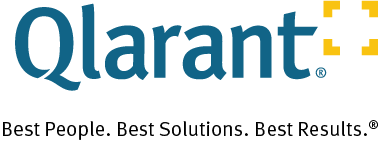11th SOW — As part of the District of Columbia QIN-QIO, Qlarant worked collaboratively with providers and partners to measurably improve the quality of care for Medicare beneficiaries. Getting results was the clear focus of all efforts under the Quality Innovation Network (QIN) Quality Improvement Organization (QIO) Task Order 001. Qlarant was focused on working with multiple partners to ensure success in all of our quality improvement work. Qlarant’s responsibilities under Task Order 001 included:
- Acquiring and analyzing relevant data, and disseminating meaningful, actionable reports.
- Community organizing and coalition building.
- Evaluating effectiveness.
- Communications and spreading successful interventions.
- Ensuring beneficiary participation and access to information and services.
- Using state factors to maximize effectiveness and sustainability.
12th SOW – As a part of the IPRO QIN-QIO team, Qlarant works collaboratively with hospitals, nursing homes, home health agencies, hospice practitioners and physician practices in Maryland, Delaware and the District of Columbia to measurably improve the quality of care for Medicare beneficiaries. Goals include reducing opioid use and prescribing modifications, increasing access to behavioral health services, reducing ADEs related to high risk drugs and reducing all cause harm, improving chronic disease management and prevention for cardiovascular, diabetes, and chronic kidney disease, reducing hospital admissions and readmissions, and improving nursing home quality.
Qlarant is working with hospitals as the anchor of community coalitions. Qlarant has used agile methodology to recruit hospitals and have exceeded its goals as a region. Qlarant will use agile methods to assess factors affecting outcomes in relevant communities. Qlarant begins with an environmental scan of each hospital. Qlarant surfaces best practices among the communities and spread to others. Qlarant create regional toolkits to prevent duplication of effort. Qlarant quickly responded to the COVID-19 pandemic crisis for both hospitals and nursing homes.


